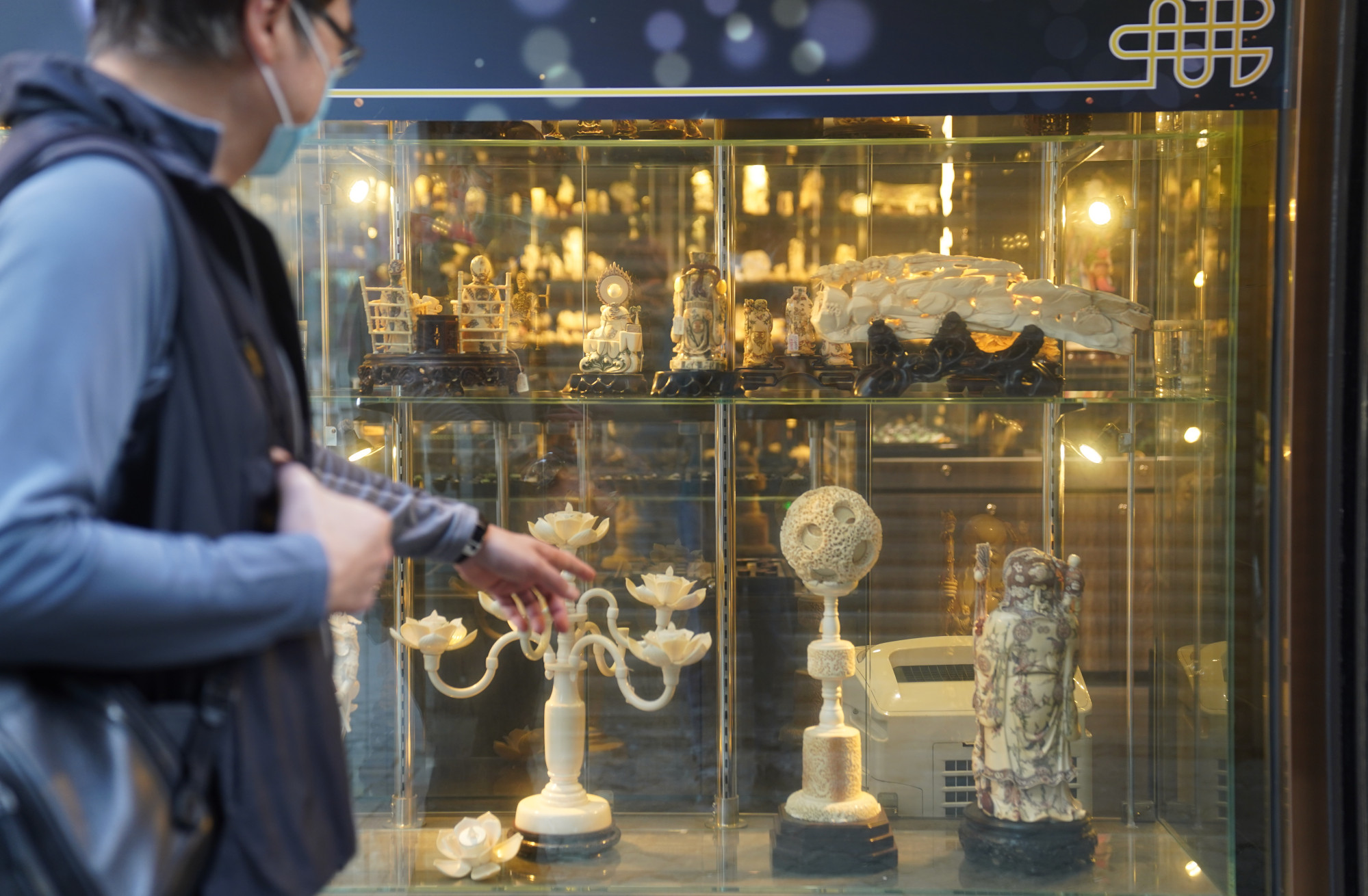
Hong Kong ivory ban needs to be strictly enforced
- Cruel smugglers have got away with it long enough and now the city must make sure those who break the new law by selling prohibited products pay the price
The local trade in ivory has tarnished Hong Kong’s international reputation for decades. A ban on the sale of most ivory products took effect at the start of the new year.
It is long-awaited and most welcome. Now, authorities must ensure the prohibition is effectively enforced.
It has taken a long time for the restriction to be put in place. There has been an international ban on commercial ivory trading since 1989.
China outlawed the domestic trade and processing of ivory on the mainland at the end of 2017.

Steps were taken to restrict this shameful business in Hong Kong the following year, but the industry, which resisted the ban, was given a generous grace period in which to liquidate its stock. It was estimated 70 tonnes of legal ivory were held by licence holders in 2016.
The new measures impose a ban on the commercial possession of elephant ivory. An exception is made for antique pieces from before 1925.
The decision not to compensate traders is understandable because they had plenty of time to sell their stock. Many in the industry had already diversified with demand for ivory dampened both by the mainland ban and a growing awareness of conservation around the world.
The prohibition must now be strictly enforced and offenders punished. The law carries a penalty of up to a HK$10 million fine or 10 years in jail.
However, this will mean little unless the authorities remain vigilant and ensure the ban is fully implemented.
But the end of most legal ivory trading in Hong Kong will, sadly, not prevent the unsavoury business from continuing on the black market. The city’s laws and ability to enforce them should be reviewed to ensure they are sufficient to meet the challenge.
The international smuggling of ivory and other wildlife products has seen numerous seizures in Hong Kong, but the syndicates behind this increasingly sophisticated criminal enterprise are not easy to catch.
African forest and savannah elephants are both endangered, and their numbers have diminished drastically. The trade in ivory that allows poachers to thrive must be stamped out.
Hong Kong’s ban is a step forward, but there is no room for complacency.

